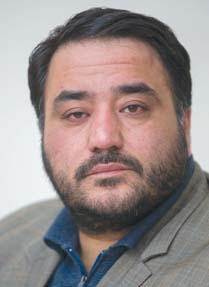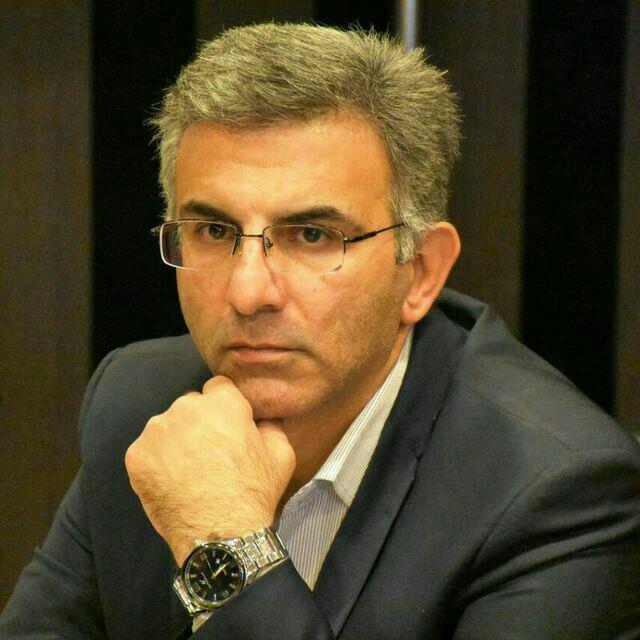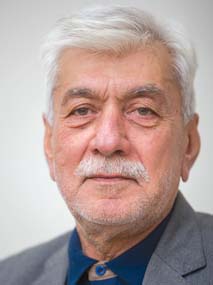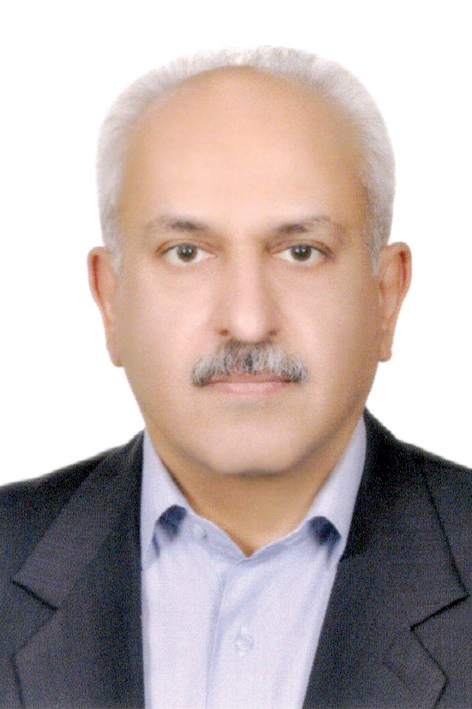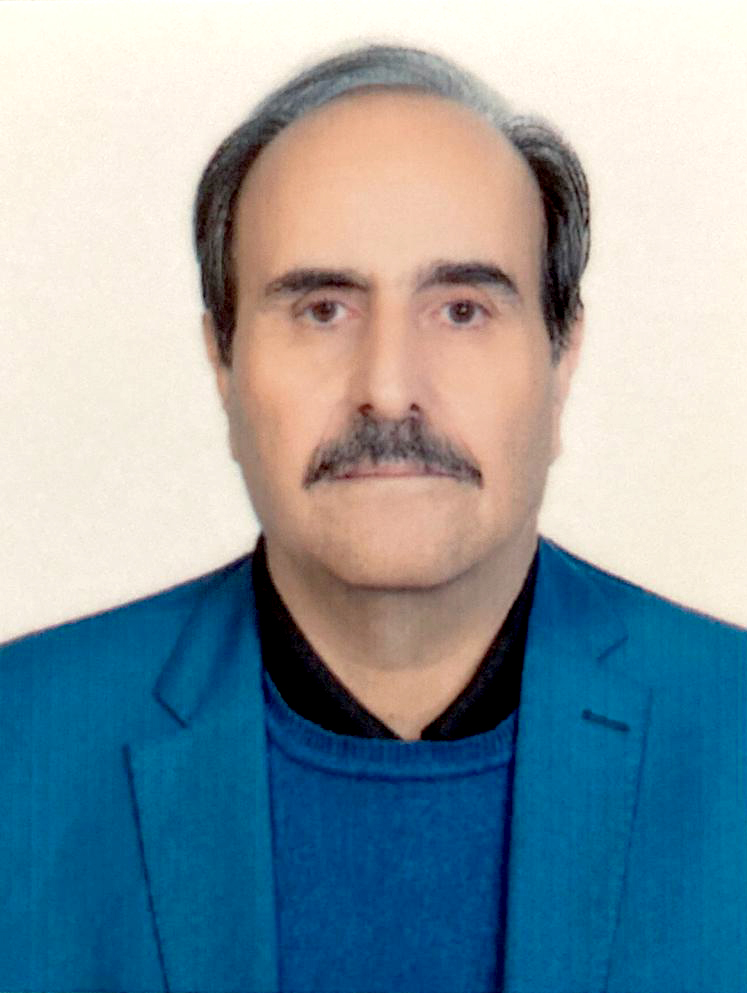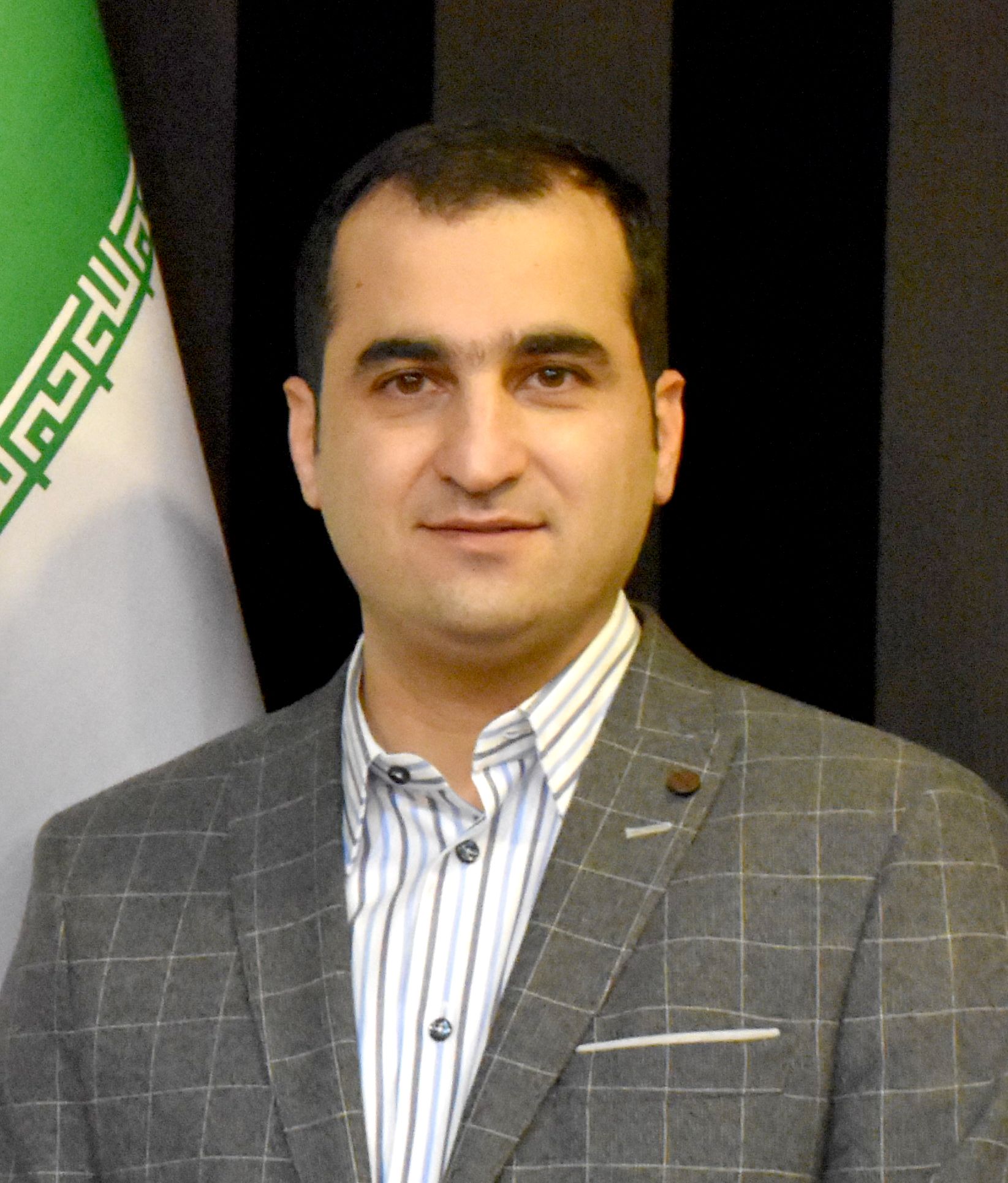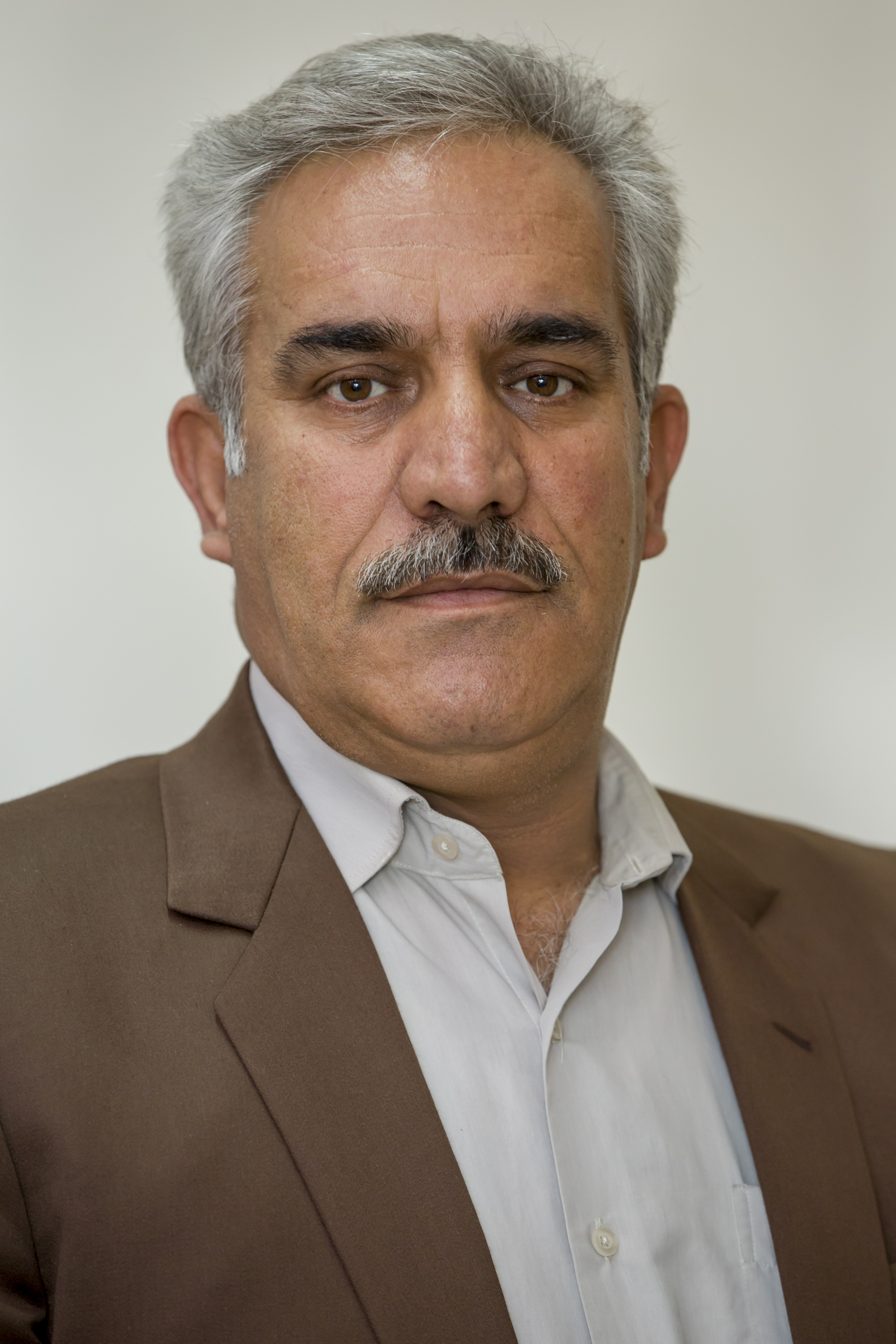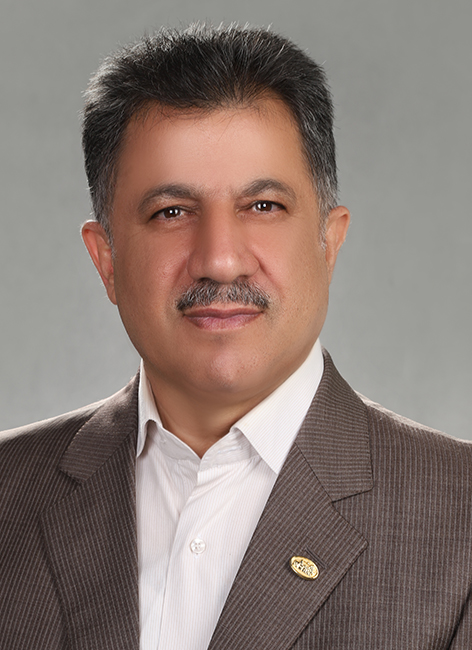
ungategories
“Tilehkouh, Sar-e Pol Zahab” Market
“Tilehkouh” border market is located at a distance of 45 km away from Sar-e Pol Zahab town. This market is involved in commercial activities such as trading and hawking through border cooperatives. It is worth mentioning that, in administrative divisions, this market has been joined to Sar-e Pol Zahab.
Sar-e Pol Zahab town is roughly 1271 square km in area and located in western side of Iran, at the farthermost of Zagros heights. It is between the Tehran-Baghdad International Road, known as Karbala Road. This town is one of the ancient and fertile towns in Kermanshah Province.
This town has a common border with Javanrood town in north, Ghasreh Shirin town and Iraq in west, Islamabad in east and Guilangharb town in west.
Due to lack of required infrastructures, Tilehkouh market had no effective activities in commercial exchanges during recent years. However, some importations were made in the form of backpacking and within the facilities of boundary cooperatives.
Increase of activities and construction of required infrastructure may make a significant difference in economic flourish of Sar-e Pol Zahab Town.
“Soomar” Market
Soomar border market, a flat area of 20 hectares, is located in southeastern side of Kermanshah Province, at a distance of 5 km from Soomar town, 67 km from Guilangharb and 220 km away from Kermanshah roughly. At the moment, regarding the length of common boundary with Arab-dwelling cities, it is considered as 6th commercial border and 2nd commercial border after Khosravi border. Soomar is the nearest market to the Province market. Both temporally and spatially, among western borderlands, it is located in the closest distance with Bagdad, Iraqi capital. Nearest city to this border is Mandeley in Diyala Province, one of the suburbs located in Balad Ruz Governorship. This city is at a distance of 20 km away from the zero point border. Somar-Mandeley border decreases the distance to Baghdad almost 70 km from the viewpoint of goods transportation. Soomar border market is at a distance of 155 km away from Baghdad and 230 km away from Karbala.
Iranian hawkers and tradesmen have been exporting their goods to Iraq since the initial days of October 2015. Goods are exported to Diyala, Wassit and eastern provinces of Iraq.
Moreover, Soomar border Market was officially established in the presence of Kermanshah and Diyala Governors, Iraq Interior Minister and Iran Ambassador to Iraq, Commercial Chamber and some other local authorities on Apr. 07, 2015. Constructing different infrastructures such as bank branches, customs and border police department, passport office and medical station for quarantining medical goods is one of the ongoing plans.
Considering geographic position and appropriate land condition this border enjoys, it will potentially increase the capacity of commercial exchange.
Now, to develop this border, improvement of inappropriate conditions of the accessing road is one of the most important actions that must be taken.
“Shoushemi”, Paweh Market
Shoushemi border market, 2 hectares in area, is located in a high and step-like land, at a distance of 35 km from Paweh town, 5 km away from the western side of Nosoud, Paweh and 155 km from Kemanshah Province. On the side of Iraq, this market is located in Sulaymaniah Province's Halabcheh in northern Iraq, next to Tavileh town of Iraq.
Between 40 to 50 trucks transits to and from the said market. Goods such as fruits, cement, Giwah (traditional shoes), bread made of rice flour, cucurbits etc. are exported from Shoushemi market. It has improved subsistence and economic conditions of the local people and flourished commerce and business in Paweh Town.
Paweh is located in northwestern side of Kermanshah Province at a distance of 120 km from capital of the province. It is 35 km away from the last border point, Ouramanat Lahoun. Being 800 Square Km in area and located 1540 m above sea level, it has common borders with Marivan town and Kurdistan Province at north, Javanroud town at south and has a common border 96 km of common border with Iraq at west.
The value of goods exported to Iraq's Kurdistan from this border was 14.2 million dollars in 2014.
“Sheykh Saleh Salas Babajani” Border Market
Being located 45 km away from Tazehabad town, of the suburbs of Salas Babajani town and next to a village with the same name, Sheykh Saleh Salas Babajani border market, as an Iranian official market has started its activities since 1996. Geographically, it is located in a step-like area with an area of more than 4 hectares.
If the roads ending to this market are widened and improved, commercial activities can considerably be raised.
According to the fact that this market is at the vicinity of Iraq, it has played an important role in the economy of Salas town as an exchange center.
Mostly, Sheykh Saleh market is the host to trucks, which contain some goods such as cement. Averagely, 50 to 60 Iranian trucks transit to and from this boundary per day. The goods exported by them to Iraq include cement, chips, aluminum plates, different plastic equipment, iron powder etc.
The area of market is fully fenced and it has two buildings to accommodate personnel.
In initial years, importation of scraps covered a big deal of market's activities but it was banned due to some reasons.
Salas Babajani became a town in July, 2002. Taze Abad is the capital of this town with a population of 10,000. Salas Babajani town has a 75-km common boundary with Iraq in west. It is 1920 square km in area. In the meantime, population of the town is 42,000.
“Parviz Khan” Market
"Parviz Khan" commercial border is located at a distance of 5 km away from the northwest of Ghasreh Shirin town, at the zero point border of Iran-Iraq. This place is named after a village near to boarder in Iraq. The distance between Parviz Khan market and Sulaymaniah, Iraq is almost 150 km. Kelar (Garmian), Darbandikhan, Zarian, Halabcheh, Arbat and Seyed Ghasem in Iraqi Kurdistan are located between the said distance. Moreover, the distance between Kermanshah and Sulaymaniah through Parviz Khan is 320 km.
This commercial border is one of the economic hubs of the country. It was established in 1997. At the very beginning, it was 3 hectares in area but it has been expanded into 30 hectares in recent years. It has to be mentioned that according to the ongoing plans of the province officials, Parviz Khan boundary market will be broadened to 400 hectares in the near future.
Parviz Khan commercial border has been established with the purpose of flourishing commercial activities and tightening the relationships between people in both countries. In addition, the reason for doing so has been to provide requirements of exportation, decrease the amount of contraband, develop non-oil exportations and provide the borderers with subsistence at last. Currently, 1000 merchants are working in this border and 3000 persons have been directly employed.
According to existing statistics, the dollar value of exported goods from Parviz Khan border is more than the value of exported goods in other markets and even some state customs. Different goods exported through this border include biscuits, cakes, mineral water, glass, ceramics, cement, granule, polyethylene, plastic artefacts, stone, potato, tomato, onion, watermelon, cucumber, shoes, plastic made slippers, air conditioner and the like. Moreover, fuel trucks daily travels to Iraq through this border. Parviz Khan border, directly and indirectly, also provides employment for 3000 persons.
Passenger terminal of Parviz khan border was established in 2015 and it is being operated since then. The terminal covers conductance of administrative and customs affairs of the border.
Moreover, passenger terminal is being constructed. Upon operation, it will eliminate the issues of passenger-related problems will be eliminated.
“Khosravi” Commercial Border
Khosravi commercial border is located in Ghasreh Shirin town, south of Khosravi terminal, next to its customs. Improvement and mobilization of this commercial border has been being carried out since 2001. A fenced area of almost 5 hectaresis being used for transportation of oil trucks to Iraq within this border. The distance between Khosravi and Parviz Khan commercial border is approximately 22 km. This border is one of the 14 borders used specially for oil transportation. It is located at a distance of 18 km away from Ghasreh Shirin town, at the zero point border of Iran-Iraq. The distance between this border and Kermanshah is 180 km.
Currently, a part of exported shipments is loaded and unloaded in the Arabic area of Khosravi commercial border, in Iraq.
Averagely, in 2014, 51,000 exported shipments were transferred through this commercial border. The most important goods exported from this border to the central and southern parts of Iraq were cement, tiles, ironware, fruit, and vegetables.
Due to the fact that Khosravi border is an official border and relevant authorities such as passport office, transport organization, customs and other appropriate administrative facilities exist therein, the capacity thereof can be improved for passengers and goods transportation if some physical changes occur therein.
Now, on the ground of some security problems, passengers do not cross the border frequently.
Kermanshah Chamber Arbitration Center
Arbitration Center, with the aim of resolving domestic and overseas commercial disputes of the province and reducing the size of the files input to the judicial system, is active in Kermanshah Chamber location.
The Center has been established, based on the implementation of paragraph H of article 5 of the law amending the modification law of Iran Chamber of Commerce, Industries & Mines, adopted in 15/9/73, in order to resolve domestic and overseas commercial disputes, based on The Law of Articles of Association of Iran Chamber Arbitration Center ratified in 14/11/80.
Arbitration procedure has always been a part of Iranian legislation, but it has been based on special case handling that concluded with the consent of the parties or by the court. With the formation of the Arbitration Center, for the first time the concept of institutional arbitration entered the Iranian legal system.
Applicants may use the services of the center by contacting telephone numbers below:
08338228131
08338228141
08338228151
The Law of the Islamic Republic of Iran Chamber of Commerce, Industries and Mines
(Approved on March 6.1991 with the Amendments of December 6, 1994)
Article 1: To Facilitate the laying of grounds for the growth and expansion of the country's economy, exchange of ideas and expression of opinions by industrial, mineral, agricultural and commercial managers, the Islamic Republic of Iran Chamber of Commerce, Industries and Mines in hereby established by virtue of the functions and powers set out in this Law.
Article 2: The Islamic Republic of Iran Chamber of Commerce, Industries and Mines is a non-profit making entity with juridical personality and financial independence.
Article 3: The Center of the Islamic Republic of Iran Chamber of Commerce, Industries and Mines which is hereafter called Iran Chamber in this law, shall be situated in the city of Tehran.
Article 4: The scope of activity of a Provincial Chamber is limited to the boundaries as laid down in the Law of the National Geographic Division, and each provincial Chamber enjoys juridical personality and shall be independent in its financial and administrative affairs in accordance with the respective regulations.
Note 1: At least fifty members are needed for establishment of a provincial Chamber.
Note 2: Tehran, like other provinces, shall have an independent Chamber and its scope of activity and range of functions will be similar to those of the other Chambers.
Note 3: The manner and amount of the Iran Chamber's financial contribution to the provincial Chambers shall be subject to the approval of the Iran Chamber Board of Directors.
FUNCTIONS AND POWERS
Article 5: The functions and powers of the Iran Chamber are as follow:
A. Generating coordination and cooperation among the merchants and industrial, mineral and agricultural entrepreneurs in carrying out the related laws and current regulations of the country.
B. Rendering of consultative opinions to the legislative, judiciary and executive powers on the economic issues of the country in the areas of commerce, industry, mining, and the like.
C. Cooperation with the executive agencies and other concerned authorities for the purpose of implementation of the laws and rules relating to the Chamber.
D. Establishment of contacts with the chambers of other countries and forming joint chambers and commissions with them on the basis of the strategic policies of the Islamic Republic of Iran.
E. Setting up specialized and commercial exhibitions within and outside the country with the approval of the Ministry of Commerce and participation in the seminars and conferences relating to the Chamber's commercial, industrial, mineral and agricultural activities in the framework of the policies of the Islamic Republic of Iran.
F. Making endeavors to survey the foreign markets for Iranian export goods and encouraging and assisting the respective entities to participate in the fairs inside and outside the country.
G. Encouraging and promoting domestic investment in production, especially with respect to the production of export goods with competitive advantage.
H. Endeavoring in the area of considering and arbitrating the national and international differences which may arise between the members or other applicants by means of setting up the Iran Chamber Arbitration Center on the basis of an articles of association which will be prepared by the judiciary Power and shall be approved by the Islamic Consultative Assembly (parliament).
L. To organize and manage the Economic Statistics and Information Center for completing the asks and activities of the Chamber.
J. Issuing membership cards in accordance with the by-law of the Iran Chamber to complete the documents required for issuance of commercial cards.
K. Setting up export and import unions and producers' syndicates in the areas of various commercial, industrial, mineral and services activities according to the relevant regulations.
L. To hold applied courses in different fields of commerce, industry, mines and services commensurate with the national requirements.
M. Provision, issuance, settlement and certification of documents which are assigned to the Iran Chamber by virtue of international rules, in coordination with the Ministry of Commerce.
N. Establishing joint chambers with friendly countries in coordination with the Ministries of Commerce and Foreign Affairs.
BODIES OF THE IRAN CHAMBER
Article 6: The bodies of the Iran Chamber are as follows:
A. The Supreme Supervisory Council
B. The Board of Delegates
C. The Board of Directors.
Article 7: The bodies of the provincial Chambers are:
A: The Board of Delegates
B: The Board of Directors
Article 8: The Supreme Supervisory Council consists of the following persons:
Ministers of Commerce, Financial Affairs and Finance, Industries, Mines and Metals, Agriculture, as well as the President and two of the Vice-Presidents of the Iran Chamber.
The Minister of Commerce shall act as the chairman of the Supreme Supervisory Council.
Article 9: The duties of the Supreme Supervisory Council shall be as follows:
A. Discussing and approving the procedural regulations respecting the conditions of membership in each of the Chambers and determination of its limits upon the recommendation of the Board of Directors.
B. Policy-making and determination of the general guidelines of the Chamber and supreme supervision of the proper execution of the same in the framework of the relevant laws and regulations.
C. Consideration of the recommendations and complaints of the Chambers respecting the manner of their activities and the means for improvement of their affairs.
D. Dissolution of the Chambers in accordance with Article 10.
E. Appointment of the provisional board of directors for a period not exceeding three months for the Chambers which are not able to carry out their duties and at the same time announcing the date of holding a new election.
F. Hearing of the report about the performance of the Iran Chamber and taking decisions on the views presented by it.
Note 1: The Supreme Supervisory Council meets at least twice a year. The manner of holding the sessions and achieving a quorum shall be outlined in a by-law that will be approved by the Supreme Supervisory Council.
Note 2: Instances and conditions of the annulment of Chamber membership shall be according to a by-law which the Board of Directors will recommend to the Supreme Supervisory Council for approval.
Article 10: The Chambers shall be dissolved by the declaration of the Supreme Supervisory Council on the following grounds:
1. Losing the minimum members needed.
2. Failure of the members to put up themselves as candidates and refusal to assume responsibilities at the Chamber.
Note: Upon the declaration of dissolution by the Supreme Supervisory Council, a board of three members shall be appointed by the Council to decide about the assets and financial undertakings of the Chamber concerned, on the basis of a by-law which will be approved by the council and in accordance with the current laws concerning the winding up of companies.
THE BOARD OF DELEGATES
Article 11: The Board of Delegates:
The Board of Delegates of the Iran Chamber consists of the appointees of the country's Chambers and representatives of the unions and syndicates affiliated to the Iran Chamber.
Note 1: At the first meeting, the board of delegates of the relevant Chamber shall be elected for a term of four years and will be introduced to the Iran Chamber.
Note 2: Any Chamber with a membership of less than 150 shall have one delegate, and Chambers with more than 150 members shall have one delegate for each 100 members.
Note 3: Of each union and syndicate affiliated to the Iran Chamber one delegate will be elected and introduced.
Note 4: Membership of the Iran Chamber Board of Delegates is honorary.
Article 12: The number of the members of the Iran Chamber Board of Delegates is 60 who are elected for a term of 4 years in the following manner:
20 persons appointed by the Ministers composing of 10 persons from the Ministry of Commerce, 8 persons from the Ministry of Industries, and 2 persons from the Ministry of Mines and Metals. 40 persons elected from among the members of the Tehran Chamber composing of 20 persons from the commerce sector, 16 persons from the industry sector, and 4 persons from the mining sector.
Article 13: The number of the board of delegates of other provincial Chambers are 15 persons of whom 6 persons are from the commerce sector, 6 persons from the industry sector, and 3 persons from the mining sector of the relevant Chamber who shall be elected for a term of 4 years.
Note: In the event that a sector has no candidates for membership, the required number shall be elected from among the candidates of other sectors.
Article 14: For membership in each Chamber, having a valid membership card from the relevant Chamber is needed.
Article 15: Election of each Chamber is carried out in one day, and the nationwide elections shall be concluded within one month.
Note 1: Two months before the end of the current term of the Boards of Delegates, the Iran Chamber is bound to hold the elections for next term.
Note 2: For holding the elections of delegates of the Tehran Chamber and the provinces, an Election Supervision Commission shall be set up consisting of one representative from the Ministry of Commerce appointed by the Minister, and 4 representatives from the Iran Chamber appointed by the president of the Chamber.
The commission, for carrying out the elections of the provincial Chambers, will form a board of not less than three persons consisting of one representative from the Ministry of Commerce, and the rest from among the respected members of the relevant provincial Chamber. The said board by publishing a notice in one of the mass-circulation newspapers will notify the members of the relevant Chambers of the date and duration and conditions of the elections.
Article 16: The functions and powers of the Iran Chamber Board of Delegates shall be as follows:
A. Appointment of the Board of Directors.
B. Examining and approving and appropriation of the Chamber budget.
C. Reviewing and commenting on the reports and recommendations of the commissions and other units of the Chamber and taking decisions on the same within the limits of the powers granted.
D. Establishment of the advisory commissions in numbers required and election of their members from among the delegates.
E. Preparing and recommending by-laws of this Law to the Supreme Supervisory Council for decision at most within two months after the formation of the Iran Chamber as well as recommending subsequent amendments to be made to the by-laws with observation of Note 2 of Article 15.
THE BOARD OF DIRECTORS
Article 17: The Board of Directors of the Iran Chamber consist of 7 members and the board of directors of each provincial Chambers has 5 members who will be elected for four years at the first meeting of the Board of Delegates.
Article 18: For managing the executive affairs of the Chamber according to the respective laws and regulations and by-laws, the President of the Chamber proposes to the Board of Directors a person as Secretary General who, upon the Board's approval and under the supervision of the President, will perform his duties.
Note: Replacement of the Secretary General will be possible upon the recommendation of the President and approval of the Board of Directors.
Article 19: The functions and powers of the Iran Chamber Board of Directors shall be as follows:
A. Implementation of the resolutions of the Supreme Supervisory Council and the Board of Delegates.
B. Reviewing and confirming the recommendations and report of the Chamber's Commissions and presenting them to the Board of Delegates and the Supreme Supervisory Council, as the case may be.
C. Appointing the representatives of the Chamber for participating in domestic and international gatherings and determination of the scope of their functions and activities, as well as approval of the related expenses.
D. Examining, approving and appropriating the annual budget prepared by the Secretary General, and recommending it to the Board of Delegates for approval.
Article 20: The functions and powers of the Board of Directors of the provincial Chambers shall be as follows:
A. Reviewing and confirming the recommendations and reports of the Commissions and presenting the same to the Board of Delegates.
B. Appointment of the representatives of the provincial Chambers for participating in domestic official gatherings.
C. Examining the annual budget and the budget appropriation report and presenting it to the Board of Delegates for approval.
Article 21: Revenues of the Iran Chamber shall be generated from the following sources:
A. Annual membership fees in accordance with the by-law which, upon the recommendation of the Board of Directors, shall be approved by the Board of Delegates.
B. Implementation for the Law on the Manner of Meeting the Expenses of the Islamic Republic of Iran Chambers of commerce, Industries, and Mines approved on 2 November 1993.
Article 22: The Chamber revenues shall be expended according to the rules that the Board of Delegates will approve Upon the recommendation of the Board of Directors.
Article 23: In all the laws and regulations wherein Tehran Chamber of Commerce, industries and Mines are mentioned, the Iran Chamber shall replace them.
Article 24: The procedural by-laws of this law at the national scale as well as the general rules and regulations governing the functions and powers of the provincial Chambers or the Board of Delegates of the Iran Chamber and the decisions which are thus approved, shall all be binding on the Board of Directors and other Bodies.
Article 25: All the assets, movable and immovable properties, liabilities and debts of the Chamber of Commerce, Industries, and Mines shall be transferred to the Iran Chamber.
Article 26: As from the date of approval of this Law, all contradictory laws shall be canceled and the new elections of the Chambers will be carried out on the basis of this Law.
Labor Law (Employment of Foreign Citizens) [TOP]
Iranian Labor Law and Employment of Foreign Citizens
Employment of foreign nationals in Iran is only possible within the framework of the provisions stipulated in the Labour Law of the Islamic Republic of Iran. The general policy of the country is aimed at meeting its labour requirements and implementing its industrial and development projects through Iranian manpower as much as possible. However, employment of foreign manpower when there is an immediate need for their expertise, is not ruled out.
According to Article 120 of the Labour Law, approved on November 20, 1990, foreign nationals are not allowed to work in Iran unless they are provided with an entry visa with the right to engage in specific work, and secondly, they receive work permit according to relevant laws and by-laws.
Obviously, foreign nationals who are exclusively on diplomatic and consular missions, as well as the staff and experts of the United Nations and its affiliated organizations, correspondents of foreign news agencies and press, are exempted from such regulations on the condition of reciprocity.
Ministry of Labur and Social Affairs shall approve the issue of a visa for a specific type of occupation for foreign nationals and work permit for them while taking certain conditions into consideration:
Work permits would be issued, extended or renewed for a period of one year.
When the interests of the industries of the country necessitate the immediate employment of a foreign national, the minister of the relevant ministry may report the case to the Minister of Labour and Social Affairs and upon the approval of the latter, a temporary work permit shall be issued for the foreign national without observing the relevant formalities for the issuance of a visa with right to engage in specific work. The temporary work permit would be valid for a maximum period of three months and its extention would be subject to the approval of the technical board in charge of the occupation of foreign nationals.
Prior to the conclusion of any contract through which foreign experts would b employed, employers are bound to inquire about the views of the Ministry of Labour and Social Affairs on the possibility for the said foreign nationals.
The Ministry of labour and Social Affairs is authorized to take measures for the nullification of the work permit for those foreign nationals who do not observe Islamic principles, current laws and regulations of the country and humanitarian relations, as declared by the competent authorities.
Employers who hire foreign nationals whose work permits have been expired or have no work permit, or employ them in jobs other than those stipulated in their work permits, or do not notify the Ministry of Labour and Social Affairs about cases where the employment agreement between them and foreign nationals is terminated, shall be sentenced to prison terms ranging from 91 to 180 days. The court usually changes the jail punishment into cash penalty.
Let's have a look at the related articles of the Liranian Labor Law.
Article 120: Foreign citizens shall not be employed to work in Iran unless they have an entry visa entitling them to specified work and have obtained a work permit in accordance with the relevant statutory regulations.
Note: The following foreign citizens are not subject to the provisions of Article 120:
(a) Foreign citizens exclusively employed by diplomatic and consular missions, subject to confirmation by the Ministry of Foreign Affairs;
(b) The personnel and experts of the United Nations and its specialized agencies, subject to confirmation by the Ministry of Foreign Affairs;
(c) The correspondents of foreign news agencies and press, subject to reciprocity and by the confirmation of the Ministry of Culture and Islamic Guidance.
Article 121: In accordance with the conditions stipulated here below, the Ministry of Labor and Social Affairsl agrees to issuing an entry visa for the foreign citizen entitling him/her to an specified work, and shall issue the work permit:
(a) according to the information kept in the Ministry of Labor and Social Affairs, there are no qualified applicants with similar education and specialization among the work-seeking Iranian citizens.
(b) the foreign citizen possesses sufficient knowledge and expertise for the job in question.
(c) the expertise of the foreign citizen is further used to train Iranians with a view to the subsequent substitution of the foreign citizen by a trained Iranian.
Note: The Technical Board for Employment shall decide whether the conditions specified in this section are fulfilled. The rules governing the number of members of the Board, the conditions for their selection and the procedure for holding the sessions of the Board shall be drawn up by the Ministry of Labor and Social Affairs, and approved by the Council of Ministers.
Article 122: The Ministry of Labor and Social Affairs may issue, extend or renew the work permit of:
(a) a foreign citizen who has continuously resided in Iran for at least ten years;
(b) a foreign citizen married to an Iranian;
(c) immigrants from foreign countries, particularly the Islamic ones, and political refugees, provided that they have a valid immigration or refugee card, and subject to the written agreement of the Ministry of the Interior and the Ministry of Foreign Affairs;
Article 123: The Ministry of Labor and Social Affairs may, if necessary and/or subject to reciprocity, exempt the citizens of certain countries and stateless persons (provided that their status is not optional and voluntary) from payment of the fee for a work permit or for the extension and renewal thereof, subject to confirmation by the Ministry of Foreign Affairs and approval by the council of ministers.
Article 124: In accordance with the provisions of this Code, a work permit shall be issued, extended or renewed for a maximum period of one year.
Article 125: Where, whatever the circumstances, an employment relationship between a foreign citizen and an employer is discontinued, the employer shall notify the Ministry of Labor and Social affairs thereof within 15 days. The foreign citizen shall within 15 days surrender his work permit to the said Ministry against a receipt. If necessary, the Ministry shall request the appropriate authorities to expel the foreign citizen from the country.
Article 126: Where it is considered contingent to recruit a foreign citizen urgently on an exceptional basis because of the needs of the industry of the country, the minister concerned shall notify the Ministry of Labor and Social Affairs accordingly and, subject to the approval of the Minister of Labor and Social Affairs, a provisional work permit shall be issued to the foreign citizen concerned, without compliance with the formalities normally required for the issuance of a visa entitling the bearer to specified work.
Note: A provisional work permit shall be valid for three months at the most, any extension thereof being subject to confirmation by the Technical Board for the Employment of Foreign Citizens.
Article 127: The conditions of employment of foreign technical experts and specialists needed by the Government shall be drawn up with due regard to their nationalities, length of service, level of remuneration and the availability of domestic manpower. The said conditions shall be subject to ratification by the Islamic Consultative Assembly, following consideration and advice by the Ministry of Labor and Social Affairs and the State Organization for Administrative and Employment Affairs. In any case, a work permit for the employment of a foreign expert shall be issued by the Ministry of Labor and Social Affairs only with the approval of the Islamic Consultative Assembly.
Article 128: Prior to signing any contract likely to entail the employment of foreign experts, an employer shall inquire the opinion of the Ministry of Labor and Social Affairs about the possibility for authorizing the employment of foreign citizens.
Article 129: The regulations on the employment of foreign citizens, including procedures for issuing, extending, renewing and canceling work permits and conditions for the selection of the members of the Technical Board for the Employment of Foreign citizens, as referred to in Article 121 of this Code, shall be drawn up by the Minister of Labor and Social Affairs, and approved by the Council of Ministers.
Article 181: Any employer who employs a foreign citizen without a work permit, or whose work permit has expired, or who employs a foreign citizen for work other than that specified in his work permit, or who fails to report the discontinuation of the employment relationship of a foreign citizen to the Ministry of Labor and Social Affairs shall, with due regard to his situation and means and to the degree of the offense, be subject to a term of imprisonment ranging from 91 to 180 days.
The Executive Regulations of Article 129 of the Labor Law of the Islamic Republic of Iran
A: Manners of Issuance, Extension, Renewal and Cancellation of Foreign Citizens' Work Permits.
Article 1: The work permit of foreign citizens whose work visas have been approved by the Technical Board for Employment of Foreign Citizens mentioned in Article 121 of the Labor Law will be issued by the "Department for Employment of Expatriates" of the Ministry of Labor and Social Affairs.
Note 1: The issuance of work visa for foreign citizens mentioned in the Article 122 of the Islamic Republic of Iran's Labor Law is not included in this article and the Ministry of Labor and Social Affairs is authorized to take direct measures in necessary cases.
Note 2: The Ministry of Labor and Social Affairs is allowed to, in exceptional cases of article 126 of the Islamic republic of Iran's labor law, issue a 3 months temporary work permit without observing the formalities related to issuance of work visa but observing other related regulations. The extension of the work permit of such individuals would be permitted following the confirmation of the technical Board for Employment of Foreign Citizens.
Article 2: Employers who use the foreign citizen's services are obliged to present the required documents for the issuance of work permit for the mentioned citizens to the related departments of Ministry of Labor and Social Affairs within one month of the citizen's arrival to the country. Otherwise, the Ministry of Labor and Social Affairs would declare the issue to the judicial authorities according to the article 181 of the labor law.
Article 3: Work permit for foreign technical experts and specialists needed by the government will be issued in any case by the Department of Employment of Expatriates after the approval of the Technical Board for Employment of Foreign Citizens and the ratification of the Islamic Consultative Assembly.
Article 4: Employers who use the foreign citizens' services, if interested in extension of the foreign experts' work permit employed in their organizations, are obliged to send the required documents along with the report of training operations to the relevant departments of Ministry of Labor and Social Affairs within at least one month prior to expire of their work permits.
Article 5: The Ministry of Labor and Social Affairs can extend the work permit of those foreign citizens mentioned in the Article 3 of this regulation.
Note: Any increase in the projects of foreign manpower, or changes made in the kind of specialisations approved previously, should be discussed again in the Technical Board for Employment of Foreign Citizens.
Article 6: All the work permit extension applications for foreign citizens employed in the private sector, in each turn of extension, would be mentioned and decided upon in the Technical Board for Employment of Foreign Nationals.
Article 7: Foreign citizens possessing valid work permits whose recruitment contracts with their employers are terminated due to any reason in conditions of change of the employer would be subjected to the renewal of the work permit.
Article 8: The foreign citizens' work permit in cases of change of the employer or the kind of employment, with the exception of foreign citizens mentioned in Article 122 of the Labor Law, would be renewed following the Technical Board for Employment of Foreign Nationals' agreement, by the relevant departments of the Ministry of Labor and Social Affairs.
Article 9: In cases when the employment relation of the foreign citizen is severed with the employer, the latter is obligated to inform the relevant departments of the Ministry of Labor and Social Affairs within 15 days for the cancellation and filing of foreign citizens' work permit.
The violators of this article would be subjected to the fines and penalties mentioned in article 181 of Labor Law.
Note: The replacement of the foreign citizen whose work permit has been cancelled is subject to the process of issuance of a new work permit in any case.
Article 10: The Ministry of Labor and Social Affairs is authorized to cancel the work permit of those foreign citizens who do not observe the Islamic rules, the country's current laws and regulations, and the standard labor relations, on the basis of reports and declarations received from the related departments.
Note: The Ministry of Labor and Social Affairs can, in necessary cases, request the competent authorities to prohibit the entrance of those foreign citizens to the country, who haven't observed the points mentioned in this article and have offended more than twice.
Article 11: The executive procedures and necessary documents for issuance of work visa and also for the issuance, extension, and renewal of foreign citizens' work permits would be according to the directions which will be proposed by the Department for Employment of Expatriates and ratified by the Minister of Labor and Social Affairs.
B: Technical Board for Employment of Foreign Nationals
Article 12: The Technical Board for Employment of Foreign Citizens would consider and decide with regards to the granting of work permit to foreign specialists according to the following points:
1. Using accurate and up to date information about the supply and demand of internal labor market, implementing the general policies of employment of foreign citizens.
2. Consideration and supervision of the implementation of general policies regarding foreign citizens' employment in the field of overcoming the shortages of the internal labor market's requirements, observing the laws and regulations.
3. Investigating, supervising and following the time scheduled training program of sectors which use foreign citizens' services.
4. Investigation and supervision of the issue of skill transfer to the Iranian manpower and replacing the Iranians instead of the foreign citizens.
5. Supervision of the determination and approval of the expertise level of foreign citizens during their work permit validity.
Article 13: The composition of the members of Technical Board for Employment of Foreign Citizens is as follows:
1. Two representatives from the Ministry of Labor and Social Affairs, introduced by the Minister of Labor and Social Affairs,
2. A representative of the sector using the foreign citizens' services,
3. A representative of the State Organization for Administrative and Employment Affairs,
4. A representative of Plan and Budget Organization.
Article 14: The meetings of Technical Board for Employment of Foreign Citizens would be held twice a week according to previous invitation chaired by one of the representatives of the Ministry of Labor and Social Affairs, appointed by the Minister of Labor and Social Affairs.
Article 15: The meetings would be in session with the participation of at least four members and the decisions made would be valid in case of at least 3 positive votes.
Article 16: The department for employment of expatriates is obliged to follow the decisions made by the technical board for employment of foreign citizens.
Article17: The Ministry of Labor and Social Affairs can, in necessary cases, establish Technical Boards for Employment in provinces, and entrust the whole or a part of authorities of the Central Board to them.
Note: The composition and manner of establishment of the Technical Board for Employment of Foreign Citizens in provinces would be according to the directions ratified and approved by the Ministry of Labor and Social Affairs.
Fees to Be Paid For Issue and Extention of Work Permits
In the year 13789 (21 March 1999 - 19 March 2000), the Ministry of Labor and Social Affairs is permitted to receive 500,000 rials for issue and 300,000 rials for extention of the work permit of foreign citizens. (Paragraph E of Note 7 of the National Budget of 1378).
Sums Receiveable from the Salary of Foreign Employees
The Ministry of Labor and Social Affairs is permitted to receive 20% of the foreign employees' salary and allowances plus the equivalent of the unemployment insurance fee paid for the Iranian workers, from the employers in the relevant private sector.
(Paragraph B of Article 26 of the Law of Collection of Some of the Incomes of the Government and Spending the Same in Certain Cases, approved on 19 March 1995)
Kermanshah through the Passage of Time
The historical province of Kermanshah, like other parts of our ancient country, has preserved relics of the eras of greatness of Iran in the midst of its mountains and Plains.
Unlike other parts of Iran that have become provisional habitats, this province has always been occupied without interruption through different periods of the history. The archaeological evidence show that the region had been one of the first habitats of early humans and one of the most important centers of population in the Central Zagros Mountains. All human life stages and periods ranging from stone age to pre-historic civilizations and to large government formation have followed their course in these boundaries.
Such that the Bistoon Hunters Cave reveals interesting points about the history of human life in Paleolithic era in Iran. Thereafter, about 9 thousand years ago due to warming climate, humans left the cave and settled at one place and that development, resulted in agriculture, animal husbandry, and consequently, village life. Undoubtedly the first villages have formed in this province such as Ganjdare Hersin, Gakieh, and Tapesarab. Prehistoric men of Ganjdare, were among the first who invented pottery in Iran and were inclined towards industrial activities.
In the fourth millennium B.C., Kermanshah Province was one of the most important commercial centers and its merchants and businessmen traded and exchanged goods with Shush and Mesopotamia merchants.The presence of Bazaars in Kangavar’s Goodin and Islamabad’s Chghagavaneh that are reminder of those times, are proof of this claim.
Based on Babylonian / Assyrian tablets, inhabitants of Zagros were Lulube and Gothic tribes.
These vigilant and brave men, in order to protect this land, have always been at war with Mesopotamians and have been victorious too, and since then the Valleys of Zagros have been center of Iranian / Mesopotamian civilizations for centuries and eventually the Iranian element dominate the area with its civilization. The existence of reliefs by these tribes in Sarpolzahab affirms this, which is one of the oldest in the Middle East.
Kermanshah area, due to common borders with Assyria, was continuously exposed to invasion of powerful government of Assyria and kings such as Tiklat-Pal-Isri, Shalmaneser V, have invaded Kermanshah boundaries frequently. The tablets remaining from Assyrian times, mention realms like Parswa, Zakruti, Madiha, and Nishani. Nishani was a region covering modern Mahidasht and Kermanshah, which were famous for their horse breeding and keeping pastures. Assyrian Yearbooks mention a city called Elipee that historians have pinpointed it between Hamadan and Kermanshah and some other historians have located it in the current site of Kermanshah.
With the formation of the states, this realm had also become one of the Medians centers and valuable relics like Goodin Fortress has remained from that era.
In that period Kermanshah was one of the vital Iranian highways and the road from Ekbatan to Babylon passed through this province.
In Achaemenes period, a royal road that connected Ekbatan to Babylon, added to the prosperity of the region. After the extinction of Achaemenes, during Solouki era, parts of Kermanshah like Bistoon and Dinor accommodated Greek colonies but soon Parthians defeated them and settled in the region. Parthians’ reliefs in Bistoon are witness to this development. In that period, Bistoon was a major centers of Parthian age.
In the course of Sassanid period, Kermanshah Province was more prosperous than any of the other ages. This region has always been of interest to Sassanid kings and due to proximity to Tisfon, their capital; they spent the summer in summer resorts around the province. Islamic historians have frequently mentioned that Khosro I had built several palaces around Taq Bostan and had hosted kings like Chinese Emperor, Indian king, Roman Cesar, etc.
By construction of cities such as Halvan in this side, and the city building policies of Sassanid kings at the country’s west side that led to foundation of Kermanshah, this region gained more credit and Sassanid kings, by constructing bridges on the rivers and public places, brought about welfare and economic prosperity for the people of the region.
With the defeat of the Sassanid by Muslims, the people of this region, unlike some other areas, were among the first communities that accepted the holy religion of Islam and started to promote it.
Abdullah Bin Omar Mosque in Rijab is one of the oldest early Islamic mosques and its is a reminder of that era. Tombs of faithful companions of the Prophet that helped him in wars like Abudajane are in Rijab. In Abbasid regime, Kermanshah was one of the four major cities of Jebal States. Harunolrashid, the famous Abbasid Caliph was especially concerned about this, as a result, tourists have mentioned the beauty and prosperity of the city.
Ibn Hoghl and Estakhri describe Kermanshah as a beautiful township with abundant water and trees. Moghadasi included this city along with Hamadan, Ray, and Isfahan in the list of 4 famous cities of Jebal State.
In the third century Hegira, Kermanshah was inside Safarian government territory. In the 4th century, a small Kurdish dynasty called Hasnoyeh gained independence in western states. The founder of this dynasty was and its most famous figure, ruled for nearly fifty years, and choose the big Sarmaj Castle as the seat of his government. In 441, Sultan Toghrol The Seljuk, sent a 100 thousand strong army and after 4 years conquered the castle.
In the sixth century, Sultan Sanjar The Seljuk, put Kermanshah and its surroundings under the rule of his nephew, Sloeiman Shah aka. Yve.
In the seventh century, Kermanshah, like Khorasan and other areas of Iran, was heavily damaged by Mongol invasion of Iran, such that Holaco’s troops committed tragic murder and looting in this area, but at the end of Ilkhani era, in Abusaid government, this area is again a matter of concern such that during his reign, the city of Sultanieh Chamchamal was built near the Bistoon. At that time, as Hamdollah Mostoufi noted, Kermanshahan was one of the 16 states of Kurdistan.
In the 9th century and early 10th century, Ottoman Turks invaded Kermanshah. In that time, Hercin and Mahidasht were emirates but there is no sign of Kermanshahan.
At the time of the Saffavids, Kermanshahan enjoyed importance and prestige. In the period of the reign of Shah Tahmasb I, a government called Kalhor, and in Shah Safi’s period, a government called Songhor & Kalhor was established in the region and were transferred to Zangeneh Lords (Khans). In fact, this is the time of the re-organization of Kermanshah and the beginning of the formation of the current Kermanshah Province.
Concurrent with the Afghan attack and the fall of Isfahan, Kermanshahan faced Ottoman aggression again and once again started to become a ruin. In the Zand era, the Zangeneh Lords (Khans) and Kermanshah residents, did not accept the Karim Khan rule at first, therefore Kermanshah faced siege and destruction for a while. During the rule of Qajar dynasty, Kermanshah was deemed important. Fathali Shah, in 1221 Lunar Hegira Calendar, appointed one of his sons called Mohammad Ali Mirzaye Dolatshah to this position as Iraq borderline keeper and also annexed the Khuzestan State to his territory and in fact, in this time, Kermanshah became an equipped military base against the Ottoman State.
Introducing the Townships in Kermanshah Province
Kermanshah
Islamabad Gharb
Ghasr Shirin
Kangavar
Sahneh
Hercin
Javanrood
Salas Babajani
Sarpolzahab
Ravansar
Dalahoo
Songhor
Paveh
Background of the Chamber
Kermanshah Province Chamber of Commerce, Industries & Mines, which around 1940’s was known as Chamber of Trade based on Kermanshah Chamber’s weekly minutes of proceedings and available evidence, held its first official meeting by the invitation of the Kermanshahan Government of the time, with the presence of the country's general trades office representative on Sunday 8 November 1931. But it already existed before and the date of its formation goes back to 1926.
While the elders still certify that the Chamber of Trade, not with this title, but with a specific title such as Kermanshah Merchants Council with the presence and participation of Kermanshah elite, has been active in the country and region’s economic scene and has been a special connecting bridge between the neighboring countries, Iran and Iraq, with the country's center.
It is evident that the Kermanshah Chamber of Commerce and Industries & Mines, with an 80 years background, has impressed its footprint in the history of this region. But the point is that, in contemporary history of Iran whose origin may be set as the year Tehran became the capital in 1210 Lunar Hegira Calendar, at the time of Agha Muhammad Khan Qajar; and after a relatively long period of trade depression that occurred in the trading goods exchanges with the East, Far East and Iran with the Middle East for a lack of security in the cities and the roads that were on the way of commercial convoys, the western part of the country, which because of proximity to huge Ottoman Empire became vulnerable in times of crisis and weaknesses and had lost its viability, in the reign of Fath Ali Shah Qajar and appointment of Prince Mohammad Ali Mirzaye Dowlatshah to head the Kermanshahan and the Sols and borderline country of Iraq, by virtue of Dowlatshah’s efforts, could once again establish new commercial and economical relationships in global trade scene, and convert the Kermanshah as a center of goods exchange and storage for trading between Iraq, Bombay, and Russia, such that the presence of dynasties of immigrant Arabs from Baghdad namely, Vakilodoleh Dynasty and Sadat Tojar Daghdad Dynasty since Dowlatshah age, opened up a vast business opportunity and based on the book The Living Ones of the Love Arena, in addition to security of western part of the country for investment of traders and merchants, moderate climate, abundant lavishness and prosperity, welcoming and friendly and hospitable and kind people of Kermanshah were an additional bonus so Arabian and Baghdad merchants, eagerly sailed their capital and trades ships towards the calm coastline, and justice and equality environment of Kermanshah. Therefore, Seyed Esmail, an Arab merchant form Baghdad, hopeful of advantages of Kermanshah in that time, arrived at Kermanshah with his 4 sons and started a vast business in Bistoon territory, so that the business circle of this dynasty from Baghdad, which in those times was a major European and Eastern business center, soon was expanded to Hamedan which was deemed a major storage depot for Russian goods, and all members of that family were engaged in business and eventually possessed huge lawful wealth and many properties. Each of the elite members of this family was expert in commercial business and had connections with major domestic and overseas trading venues and amassed great credit. Also, marital relationships between migrant families such as Baghdad Arab Vakilodoleh with Alam and Taghavi and Alagha, and the prominent presence of the deceased, Haj Mohammad Hassan Company, The Vakilodoleh II, created a vast interrelated communication circle in western trades and thus, Haj Seyed Mehdi Arab and his father, Agha Seyed Hadi, and Agha Seyed Mohammad Ali, launched wholesale Bombay and Baghdad trades in Kermanshah Customs Hall, and the brothers’ commercial influence was also extended to Hamedan.
